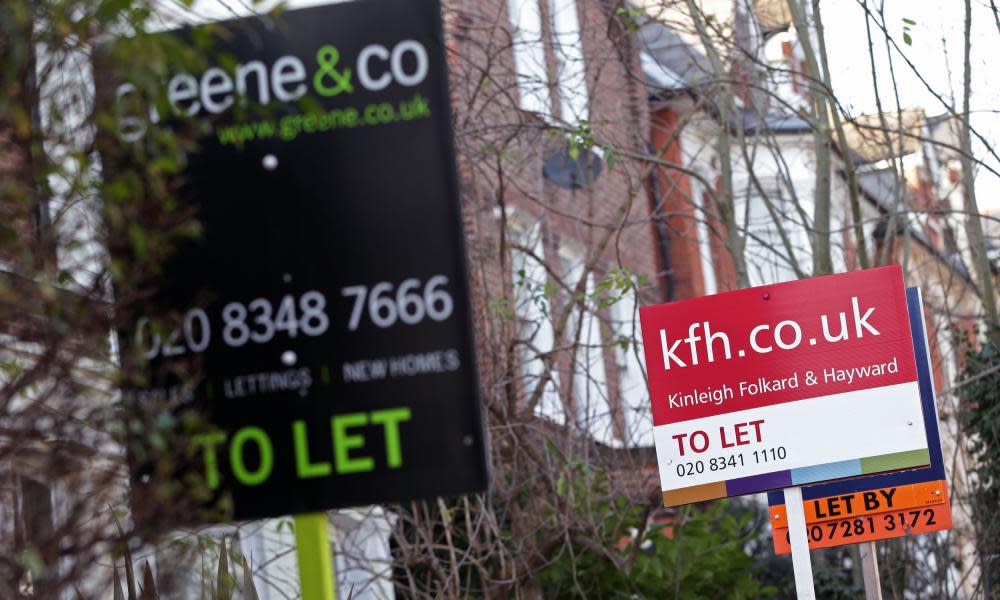Homelessness lawyers complain of legal aid 'culture of refusal'

Lawyers who help people in danger of losing their homes claim they are being forced to take on cases at their own financial risk as the Legal Aid Agency adopts a “culture of refusal”.
Applications for legal aid in homelessness cases have tumbled despite a steep rise in the number of street sleepers over the past six years, the agency’s figures show.
Some lawyers say they have to take cases on a pro bono or unpaid basis, hoping that legal aid will belatedly be awarded by the LAA to cover their costs.
Concern over the way legal aid is awarded in homelessness cases was raised after a Birmingham woman, Terryann Samuels, won a case at the supreme court this month.
The LAA repeatedly refused to support Samuels’ appeal and only belatedly funded her claim after the supreme court agreed to hear the case. Her solicitor, Mike McIlvaney, has published a detailed chronology of her battle to obtain legal aid.
Figures obtained by the shadow justice minister, Gloria De Piero, through parliamentary questions show that since 2012-13, when the Legal Aid, Sentencing and Punishment of Offenders (Laspo) Act came into effect, applications for civil representation in homelessness cases have fallen by 34%.
Over the same period, the proportion of cases for which legal aid was granted has fallen from 97% to 88% in recent years, though last year it was 98%. Applications for legal representation in possession proceedings have also dropped significantly, from 7,257 in 2012-13 to 6,333 in 2017-18.
The Ministry of Justice denies there have been any changes in either the rules affecting homelessness cases or the way in which officials handle applications. In 2017-18, the LAA said it processed more than 500,000 applications for legal aid, and 97% of civil legal aid applications were processed within 15 working days. It is said to be rare for housing lawyers to work at risk.
But specialist lawyers, including those working for the homelessness charity Shelter, say applications are being deterred due to strict interpretation of regulations, delays in determinations and the suggestion that lawyers take on claims at their own financial risk.
Jo Underwood, the managing solicitor at Shelter, said: “The LAA are blocking access to justice and making perverse decisions about the merits of cases in situations where the courts, the solicitors and the barristers involved all agree there are good reasons for the matter to be heard in court.
“Shelter solicitors across the country acting for homeless and badly housed clients experience this kind of bad decision-making from the LAA on a regular basis. We work hard to keep cases out of the courts so that our clients can find or keep a home without unnecessary and stressful litigation. However, when we do need to defend cases, ensure a client has a voice in court or bring a legal challenge to unlawful and poor practice, we face huge bureaucratic hurdles and lengthy delays to get our homeless clients the legal aid they are entitled to.”
Simon Mullings, a solicitor at the law firm Edwards Duthie Shamash, said there was growing evidence of a culture of refusal. “If legal aid is not granted it means people’s rights are not being enforced,” he said. “Local authorities who may well be subject to a a duty will not be subject to the duty. A case is not just for the individual, it also has a precedent and so it can affect hundreds of homeless people. Lack of legal aid is contributing to homelessness.”
Sue James, a supervising solicitor in housing at Hammersmith Law Centre in London, said: “As the shortage in legal aid solicitors continues to grow, there is an increasing risk that people will find themselves without a housing solicitor to challenge homelessness decisions taken by local authorities. A consequence of this will inevitably lead to more people becoming homeless.”
De Piero said: “Severe cuts to legal provision under this government have left people without legal help and representation, and even cases that fall under the scope of legal aid are slipping through the cracks of a broken system. The government must provide access to justice for those in these situations, and ensure nobody else is forced to choose between providing food for their children or putting a roof over their heads.”
An MoJ spokesperson said: “We spend £1.6bn annually on legal aid and it was granted in 98% of applications involving homelessness last year. We recently announced a series of pilots offering more support for those with social welfare issues like housing. In addition, a £5m innovation fund will expand the range of services and a new campaign will improve awareness of the legal support that is available.”

 Yahoo News
Yahoo News 
